I’ve noticed a big change in what people want from their fitness gear, and this is very true for yoga mats. As yoga continues to grow in popularity around the world, the demand for eco-friendly yoga mats is higher than ever. Studios, gyms, and wellness brands are increasingly looking for sustainable options that are safe for both practitioners and the environment. India, with its rich tradition in yoga and growing manufacturing capabilities, has become a hub for high-quality, environmentally conscious yoga mat production.
In this blog, we’ll explore the top 7 eco-friendly yoga mat factories in India that specialize in natural, non-toxic, and sustainable materials. Whether you’re looking for custom designs, bulk orders, or premium-quality mats, these factories offer solutions that combine durability, performance, and green practices—perfect for businesses looking to make a positive impact on both their clients and the planet.
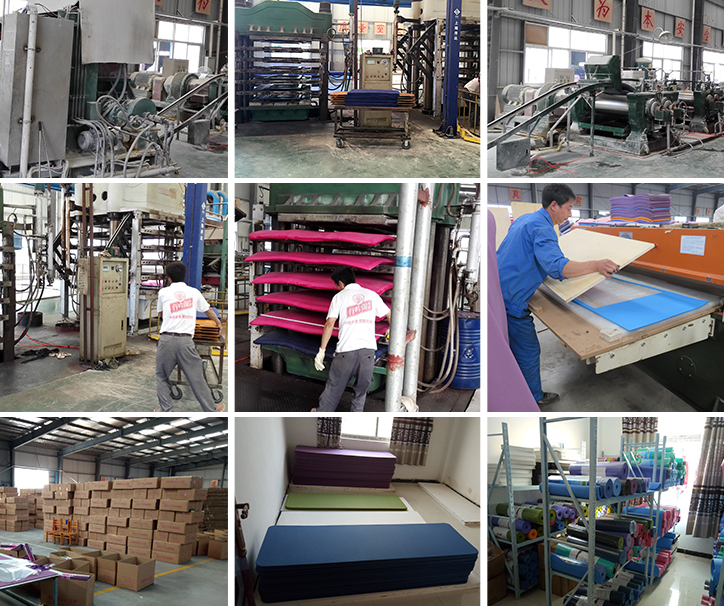
My Top 7 Picks for Yoga Mat Factories in India
I want to share some of the leading yoga mat factories I’ve found in India. From my experience, these companies truly care about the planet and produce high-quality mats.
FDM Yoga
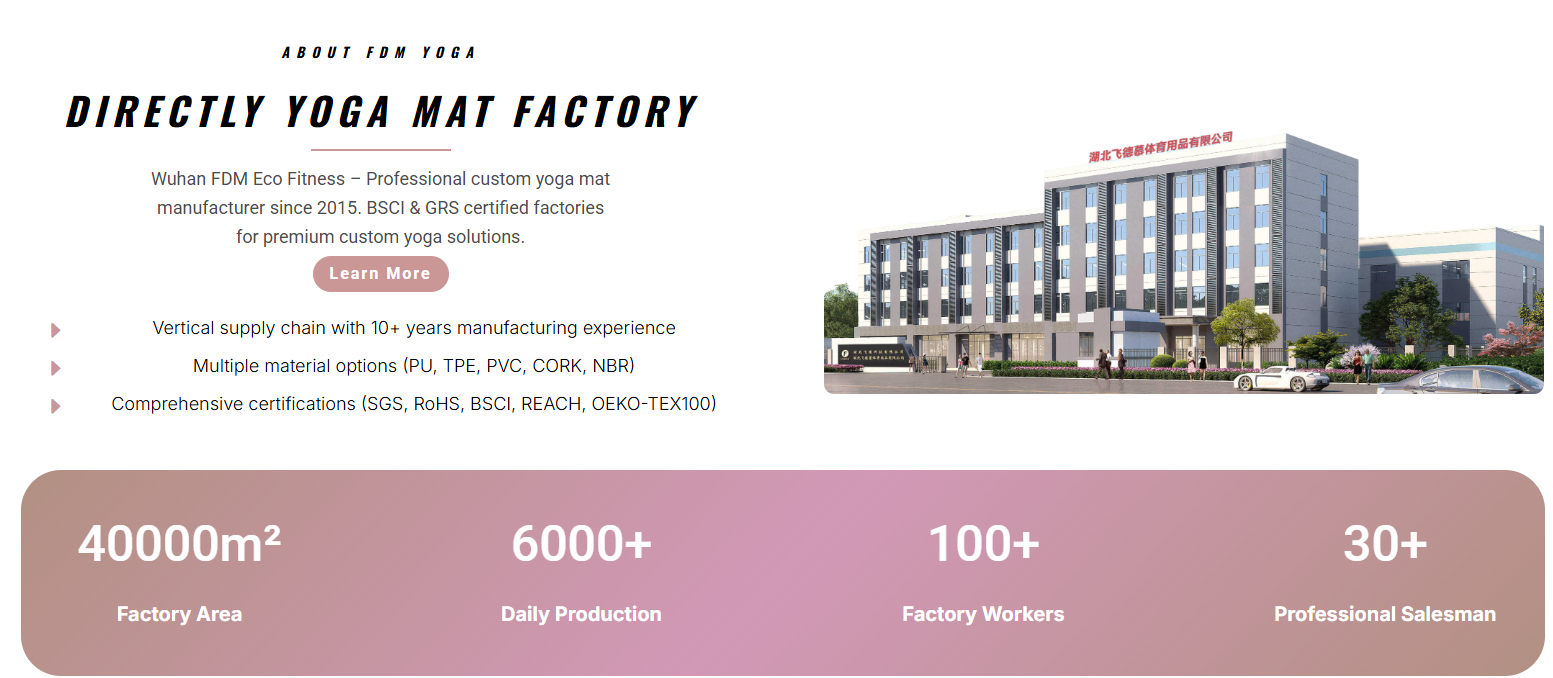
FDM Yoga is a leading yoga mat manufacturer specializing in high-quality TPE and natural rubber yoga mats. One of their standout strengths is their comprehensive OEM and ODM services, making them an ideal partner for brands and studios looking to create custom-branded yoga mats or launch products under their own private label.
With years of export experience, FDM Yoga efficiently ships bulk orders to markets across North America, Europe, and Asia, ensuring timely delivery and professional logistics support. Their focus on quality and reliability makes them a trusted supplier for wholesale buyers and distributors.
Additionally, FDM Yoga offers competitive pricing for large-volume orders, making it easier for businesses to maintain healthy profit margins while providing premium yoga products to their customers.
Best For: Brands, yoga studios, and wellness businesses seeking customizable, eco-friendly yoga mats in bulk with flexible design options and dependable international shipping.
Proyog
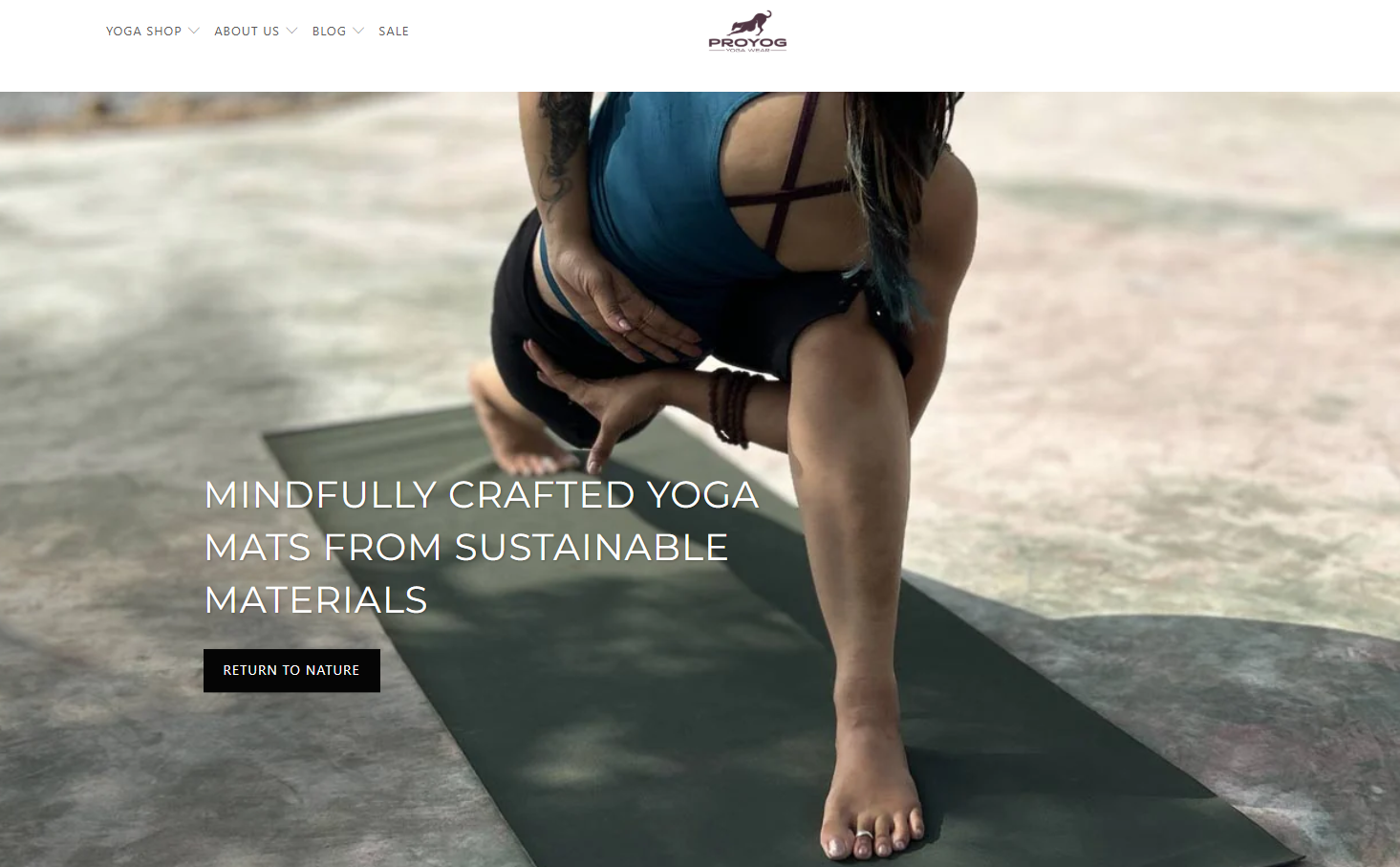
In my view, Proyog stands out as a top choice for sustainable yoga gear, crafting products from organic, eco-friendly materials that are fully biodegradable. Their commitment to environmental responsibility and fair-trade practices ensures that every mat, strap, and accessory aligns with ethical and sustainable standards.
Proyog has a strong export presence, particularly in Europe and the USA, making it a reliable partner for international businesses seeking high-quality, eco-conscious yoga products. Their dedication to both sustainability and product excellence allows brands to tell a meaningful story while offering premium yoga gear to their customers.
Best For: Boutique yoga brands and wellness businesses looking for eco-friendly yoga mats, straps, and accessories that combine sustainability with premium quality.
Kaivalya Yoga Mats

I would recommend Kaivalya for anyone seeking custom yoga mat options. They provide a variety of sizes, colors, and printing options, allowing brands to feature their logo or private label designs. Their production process emphasizes sustainability and fair-trade practices, making Kaivalya particularly appealing to boutique yoga brands that value both ethics and aesthetics.
Kaivalya’s mats are designed with biodegradability and durability in mind, ensuring eco-conscious products that last. They also support low minimum order quantities (MOQs) for startups, while accommodating bulk wholesale orders for larger retailers, providing flexibility for businesses of all sizes.
Best For: Buyers seeking eco-friendly, uniquely textured yoga mats with a natural look and feel, ideal for wellness studios, boutique brands, and eco-conscious retailers.
Jade Organics India
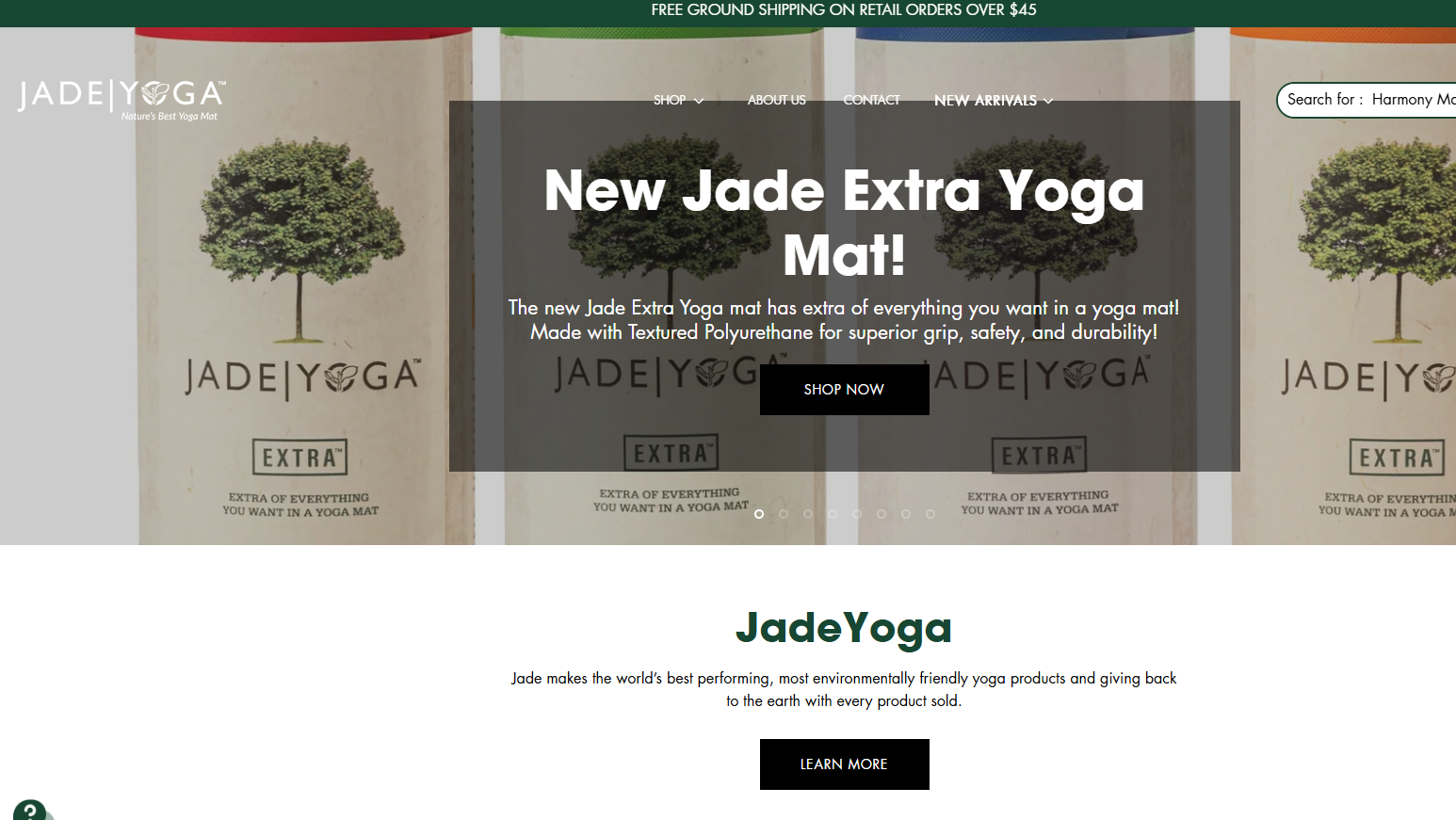
This factory specializes in natural rubber and cotton yoga mats, delivering high-quality products even for large bulk orders. They offer flexible OEM and ODM services, allowing clients to customize designs, branding, and specifications to meet diverse business needs.
Their mats are celebrated for excellent grip, superior cushioning, and long-lasting durability, making them perfect for both home practice and professional studio settings. With a focus on eco-friendly materials and consistent quality, they are a trusted choice for businesses seeking sustainable yoga solutions.
Best For: Gyms, yoga studios, wellness brands, and wholesale distributors looking for premium, eco-friendly yoga mats with customizable options.
Indica Eco Mats
Indica Eco Mats focuses on crafting high-quality yoga mats from natural and recycled materials, combining sustainability with functionality. They are experienced in handling wholesale orders and private-label production, making them a versatile partner for brands of all sizes.
Their products offer customizable options, including size, thickness, and logo printing, allowing brands to create mats that reflect their unique identity. With green certifications and proven export experience, Indica Eco Mats is a trusted supplier for businesses targeting eco-conscious markets.
The mats’ use of recyclable and biodegradable materials enhances their eco-marketing appeal, helping brands communicate their commitment to sustainability and environmental responsibility.
Best For: Private-label brands and wellness businesses aiming to position themselves as 100% eco-conscious while offering high-quality, sustainable yoga mats.
Earthyoga India
I find Earthyoga India’s mats distinctive because they combine cork and natural rubber, delivering a unique eco-friendly texture that’s both durable and sustainable. They also provide custom size and color options, reflecting their commitment to flexible, client-focused solutions.
Their products carry eco-certifications that appeal to international buyers, supporting brands in meeting global sustainability standards. With capabilities for wholesale supply, private-label production, and export support, Earthyoga India is a reliable partner for businesses looking to scale sustainably.
Best For: Retailers, importers, and wellness brands seeking certified sustainable yoga mats with customizable options and bulk availability.
Gaiam India (or Local Partner Factory)
This large-scale manufacturer stands out for its sustainable product line, producing eco-friendly yoga mats at scale while maintaining strict quality control. Their experience in handling high-volume production makes them a reliable partner for businesses that need consistent product quality across large orders.
With an excellent distribution and logistics network, they efficiently support international shipping, which explains why many global brands trust them for their supply needs. Their combination of scale, quality, and sustainability positions them as a top choice for businesses seeking dependable, eco-conscious suppliers.
Best For: Large distributors, corporate buyers, and wellness brands looking for trusted, high-volume suppliers of eco-friendly yoga mats.
Why I Recommend Indian Yoga Mat Makers
I’ve seen India become a top spot for making custom yoga mats that are good for the earth. I think this is because of the country’s rich natural resources and talented workers. Makers there use materials like natural rubber, cork, and jute. This meets the needs of customers who want products that don’t harm the planet.
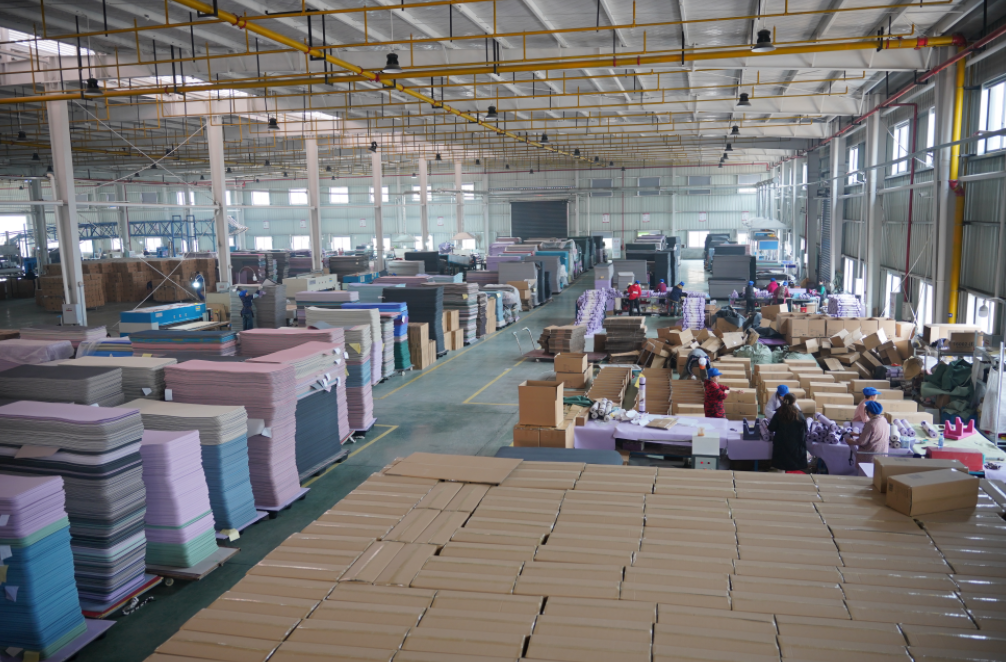
Better Prices Than Europe/US
A big plus of buying from India is the lower cost. Making a yoga mat in India is usually cheaper than making one in Europe or the US. This saving means wholesalers and retailers can sell the mats at a good price and still maintain high quality.
Skilled Hands and Modern Machines
I like how Indian makers mix old-school skills with new machines. This approach creates top-quality mats. It also provides jobs for local craftspeople. Their skill with both tools and traditions produces yoga mats that last a long time and look great.
Many Materials and Custom Choices
I suggest Indian factories because they offer a wide selection of materials, including organic cotton, TPE, and jute. They also provide great custom options like different sizes, colors, and personal branding. This freedom helps brands create a product their specific customers will love while using earth-friendly methods.
Meeting Global Green Goals
When you work with these Indian yoga mat manufacturers, you are supporting worldwide green efforts. I’ve found that customers who care about the planet appreciate the focus on materials that are non-toxic and break down naturally. Picking an Indian factory means you support fair production methods and help make the world a healthier place.
Conclusion
Demand for green products is growing. In my experience, Indian manufacturers are leaders in the sustainable yoga mat market. They have access to materials like natural rubber, cork, and jute. This helps them produce excellent mats for customers who care about the planet.
Benefits of Sourcing from India
- Cost-Effective: I find that producing yoga mats in India is less expensive than in Europe or the US. It allows my business to get high-quality products at competitive prices.
- Skilled Workforce: Indian factories combine traditional skills with new technology. I believe this makes their products both strong and beautiful.
- Diverse Materials: A great selection of green materials is available. This includes organic cotton and TPE. They also offer customization for your brand’s needs.
Foster Sustainability
Partnering with Indian factories supports fair production. It also connects your business with global green efforts. I suggest choosing sustainable manufacturing to attract customers who value the environment. It shows your brand is committed to being responsible.
I recommend looking into partnerships with Indian yoga mat makers. This can lead to a successful business that values sustainability and quality. You should consider green sourcing to meet the high demand for these products in the fitness industry.

